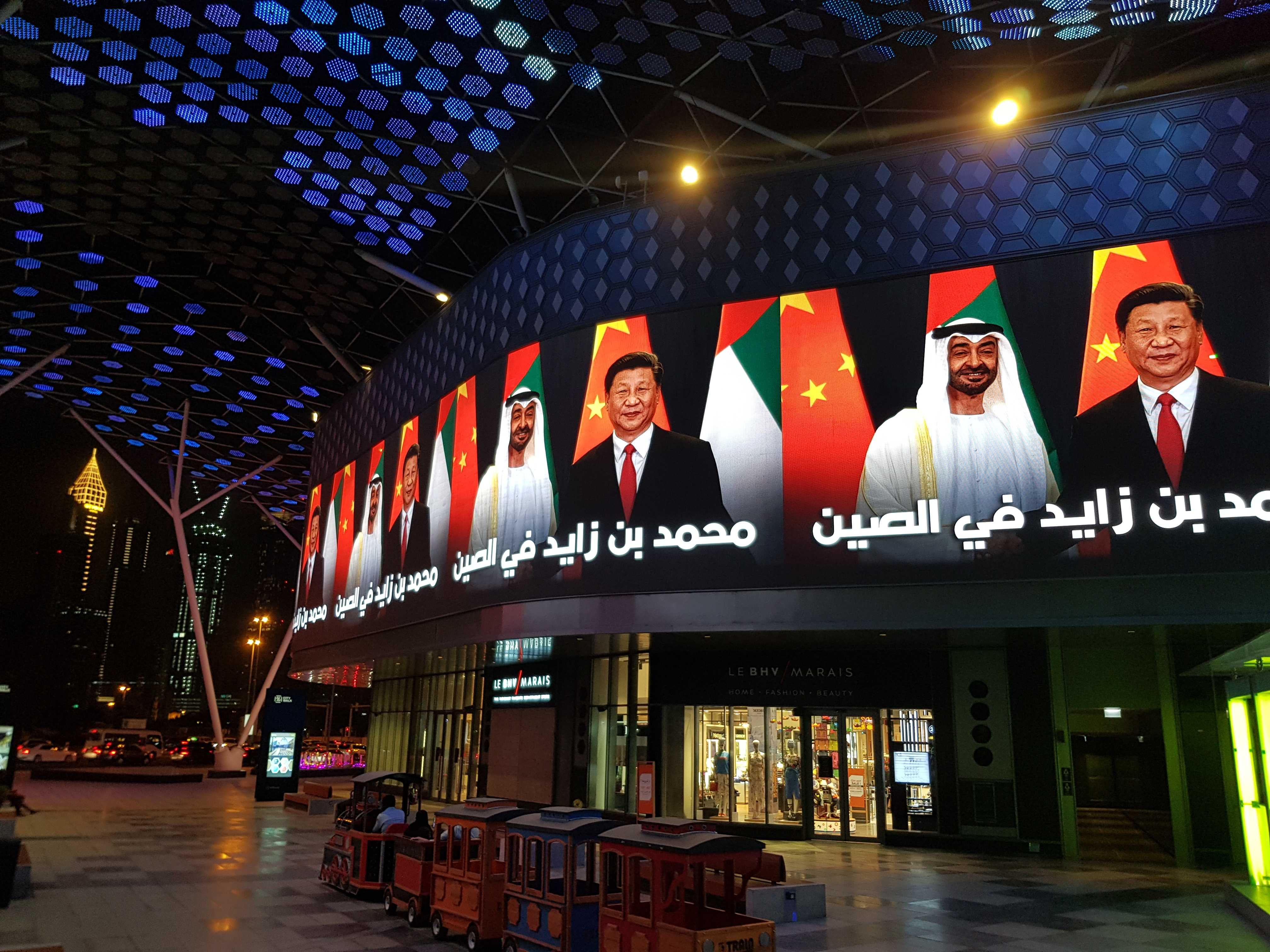What impact will the recent UAE-China deals have on the Mid East startup sector?

In a recent piece on Wamda, I discussed the choice the Middle East would eventually have to make between US and Chinese technology. It seems that this week, the UAE made its choice, signing several high-profile deals with the Asian giant.
Abu Dhabi Crown Prince Sheikh Mohamed bin Zayed met with Chinese President Xi Jinping in Beijing on Monday this week in a three-day visit aimed at developing cooperation and establishing strategic partnerships between the two countries. More than 240 senior UAE political and business officials attended the forum, where 16 Memoranda of Understanding (MOU) were signed worth billions of dollars.
Among the most notable were those signed by Mohamed Alabbar, chairman of Dubai’s Emaar Properties, noon.com and Symphony Investment.
Emaar Properties, owners of the Dubai Mall, signed an $11 billion deal with Beijing Daxing International Airport to develop residential and leisure facilities across the airport.
Online markteplace noon.com partnered with Chinese technology company Neolix to trial driverless delivery vehicles designed to deliver its products. Noon will introduce and trial Neolix’s autonomous delivery vehicles in both the UAE and Saudi Arabia within the next few weeks, marking the first time such technology has been used in the Middle East. Neolix was founded in 2015 and has since developed and industrialised the production of autonomous vehicles targeting commercial applications. The company, known for its robust research and development (R&D) in autonomous vehicles will prove to be a valuable partner in innovating and solving last-mile logistics in the region.

noon's new autonomous delivery vehicles
Alabbar continued his signing spree with a deal between Symphony Investment and China’s home-grown ride-hailing company Didi Chuxing, to establish an “industry partnership across the Mena region and China”. The parties will set up a joint venture headquartered in Abu Dhabi to promote the sharing economy and internet consumer services in the region. Abu Dhabi’s Mubadala Investment Company is likely to join the consortium to help Didi expand in the region. Didi counts some 550 million users on its platform and provides 10 billion passenger trips a year. The company has been able to scale at an incredible pace since its launch in June 2012 and if it launches its services in the region, it will be a hot contender for US-rival Uber, which acquired Dubai-based Careem earlier this year.
The value of these partnerships is not just the trade and investment they will yield, it is in the skills and expertise that they will bring with them. When Ireland encouraged global tech firms like Facebook, Dropbox and PayPal to open their European headquarters on its “Silicon Docks”, it did so with the intention of developing an ecosystem that was able to grow organically and give birth to startups like Soundwave which was acquired by Spotify, Movidius which was acquired by Intel, and Intercom, which is now considered a unicorn.
The arrival of Chinese tech firms will likely create opportunities for acquisitions for startups across all sectors in the region, providing validation and a boost to the ecosystem. China-based venture capital (VC) firm MSA Capital has already established a presence in Bahrain, eyeing up investments in the Middle East tech space. Such “smart money” and greater collaboration will not only create more job opportunities and competition here, but the Chinese will inevitably bring their R&D capabilities that will stimulate economic growth and innovation in an ecosystem that currently feels more comfortable with copying global ideas.
China’s technological brilliance has been in identifying and understanding the wants and needs of the Chinese consumer and tailoring its products and services to them. In the absence of US-based powerhouses like Google, China’s entrepreneurs have had the space to develop products and services that have become some of the most valuable businesses in the world. This is why an app like WeChat has managed to grow to the behemoth that it is today. While the rest of the world is content with using different apps for different services – Whatsapp for messaging, Uber for ride-hailing, Amazon for shopping, WeChat has managed to combine them all and other services onto one platform, essentially becoming the internet on mobile.
It’s a model that many tech companies would love to emulate, the vast amounts of data the company churns out on individual users is incredibly valuable and Careem has already expressed an interest in becoming the WeChat of the Middle East.
“We are a hungry, talented and ambitious nation. I hope it will inspire our tech-driven youth to dream big and to achieve those dreams because everything is possible here,” said Alabbar of the partnerships in a statement.
These new deals are not limited to the UAE alone. China views the emirates as a route to gain access to the other lucrative markets in the region, namely Saudi Arabia and Egypt. China is now the second largest trading partner of the Mena region, and bilateral cooperation has expanded from commerce to finance, manufacturing and advanced technology. Since 2005, China has invested close to $189 billion in Mena, much of it after the launch of the Belt and Road Initiative first outlined in 2013 and part of which pledges to build a digital silk road to support “innovation action plans for e-commerce, digital economy, smart cities and science and technology parks”.
The main beneficiaries of these investments have been Saudi Arabia with $37.55 billion, the UAE with $32.82 billion and Egypt with $25.06 billion according to American Enterprise Institute (AEI).

While the West frequently flinches at the mention of Chinese technology, the Middle East has embraced it, for better or worse.
Where China has managed to gain trust is in its reluctance in getting involved in the region’s political and security affairs. Unlike other players in the world, it is not engaged with the wars in Syria or Yemen and although it has an interest in ensuring the security and stability of the Middle East due to its reliance on the region’s hydrocarbons, it has not meddled in state affairs– at least on the face of it.
"We share common aspirations, ambition, a vision of investment in human capital and envisage a future of safety, peace and stability worldwide. The UAE and China are moving towards a promising future," said Sheikh Mohamed bin Zayed in his speech in Beijing, summing up the inevitable strengthening of ties.


